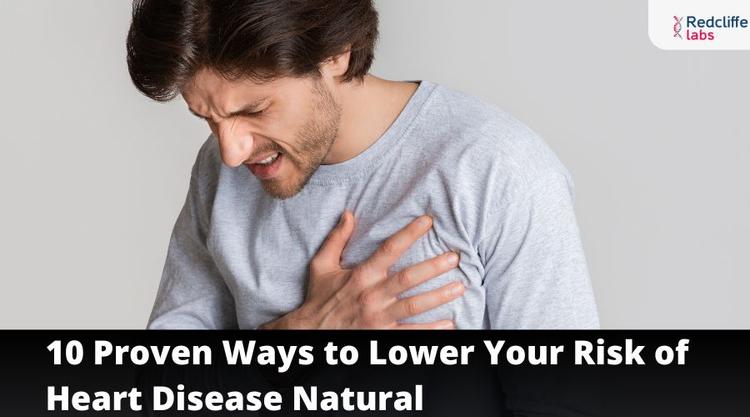Is Cardiac Arrest Different From Heart Attack?

Medically Reviewed By
Prof. Ashok Rattan
Written By Kirti Saxena
on Sep 17, 2024
Last Edit Made By Kirti Saxena
on Jul 19, 2025

People often think that cardiac arrest and heart attack are the same thing. But actually, they are not. Do you know the difference? For instance, If your doctor told you that your loved one has a cardiac arrest, not a heart attack? Would you be able to know the difference between both of them?
Both conditions can be life-threatening, yet they involve different processes within the heart. Understanding these differences is vital for recognizing the signs, responding effectively, and seeking appropriate medical intervention.
Let’s understand more about the difference between cardiac arrest and heart attack.
Cardiac Arrest vs. Heart Attack: Understanding the Differences
When it comes to heart health, the terms "cardiac arrest" and "heart attack" are frequently used interchangeably, but they represent different medical emergencies.
What is a Cardiac Arrest?
Cardiac arrest, also called sudden cardiac death, occurs when the heart suddenly stops beating. It is caused by an electrical malfunction in the heart, which prevents blood from flowing effectively to the heart and other vital organs.
What is a Heart Attack?
A heart attack, also called a myocardial infarction, happens when blood flow to a part of the heart muscle is blocked. Without enough oxygen, blood flow to the heart can damage or kill the heart muscle. This blockage is often due to a buildup of fatty deposits (atherosclerosis) or a blood clot in one of the coronary arteries.
Essential Differences Between Cardiac Arrest and Heart Attack
Both conditions are related to heart health but significantly differ in their causes and symptoms.
Cardiac Arrest
- Immediate and Sudden- Cardiac arrest happens abruptly and without warning.
- No Pulse- The heart ceases to beat, leading to a lack of blood flow.
- Immediate Treatment Needed- Requires immediate CPR and defibrillation to restore heart rhythm.
- Gradual Onset- Symptoms can develop over minutes to hours.
- Pulse Present- The heart continues to beat but with reduced efficiency.
- Medical Intervention- Requires medical treatment to restore blood flow and minimize heart damage.
Common Symptoms of Cardiac Arrest and Heart Attack
The common signs and symptoms of Cardiac arrest and heart attack may vary in males and females.
Women are more likely to experience shortness of breath and nausea-like symptoms. Cardiac arrest often occurs in people who don't know they have a heart problem.
Heart Attack Symptoms
- Chest pain or discomfort
- Pain in the shoulder, arm, neck, jaw, or back
- Shortness of breath
- rapid or irregular heart rate
- Nausea or vomiting
- Sweating
- nausea and vomiting
- Lightheadedness or dizziness
Cardiac Arrest Symptoms
- Sudden collapse
- Unresponsiveness
- No pulse
- Dizziness
- nausea and vomiting
- loss of consciousness
- Difficulty breathing or no breathing
Causes and risk factors: Heart attack Vs. cardiac arrest
The major causes and risk factors of heart attack and cardiac arrest are mentioned below-
Heart Attack
The primary reason for heart attacks is atherosclerosis, a condition where plaque builds up in the coronary arteries that narrows and reduces the blood flow to the heart. The heart attacks are caused by coronary heart disease, which starves your heart of oxygen.
Risk factors:
- High blood pressure
- High cholesterol
- Smoking
- Diabetes
- Obesity
- Family history of heart disease
- Age (over 45 for men, over 55 for women)
- Stress
- Lack of physical activity
- Certain medical conditions (e.g., sleep apnea, rheumatoid arthritis)
Cardiac Arrest
Some heart diseases and health factors, including coronary heart disease, may increase your chances and risk of cardiac arrest.
Risk factors:
- Heart attack
- Coronary artery disease
- Heart failure
- Certain heart conditions (e.g., cardiomyopathy, hypertrophic cardiomyopathy)
- Electrolyte imbalances
- Drug overdose
- Electrical shock
- Sudden infant death syndrome (SIDS)
Note: It is important to understand that heart attacks and cardiac arrest are distinct conditions but often interconnected. A heart attack can raise the risk of cardiac arrest due to the damage it causes to the heart muscle. However, cardiac arrest may also be caused by other factors, such as electrical problems within the heart.
How do we diagnose if it is a Heart Attack or Cardiac Arrest?
The doctors can recommend some tests to diagnose if it is a heart attack or cardiac arrest.
Diagnosing a Heart Attack
To detect a heart attack, your doctor will examine you physically first and then may recommend you take an Electrocardiogram (ECG) test to check your heart's electrical activity.
Your doctor may also recommend echocardiograms to determine the strength and vitality of your heart.
Diagnosing a Cardiac Arrest
Your doctor may recommend getting a Chest X-ray, some blood tests, and an echocardiogram for other signs of heart disease.
Your doctor may recommend some other essential blood tests and screening tests to detect the risk of heart disease, including-
- Troponin I and T Test
- High-Sensitivity C-Reactive Protein (HsCRP) test
- N-Terminal Pro B Type Natriuretic Peptide Test (NT-pro BNP)
Treatment and Intervention Options for Heart Attack and Cardiac Arrest
Your doctor may treat the treatment options based on the type of heart disease, such as whether it is a heart attack or cardiac arrest. The medical expert will examine your medical history, the seriousness of heart attack and cardiac arrest, previous surgeries or medical conditions, and more.
Cardiac Arrest Treatment
If you have had cardiac arrest, your doctor may recommend the following treatment procedures-
- CPR (Cardiopulmonary Resuscitation)
- Defibrillation
- Medications
- Surgery
- Living a healthier, more active lifestyle
Heart Attack Treatment
- Medications
- heart bypass surgery
- heart valve surgery
- Angioplasty and Stenting
- pacemaker insertion
- in some cases, a heart transplant
- Healthy lifestyle changes
How can you Prevent the risk of Heart attack and Cardiac Arrest?
Well, the key to avoiding the risk of both cardiac arrest and heart attacks is living a heart-healthy lifestyle and managing risk factors.
What lifestyle changes help?
- Eat fresh fruits, vegetables, and lean proteins in your diet.
- Regular physical activity.
- Quitting smoking and tobacco
- Manage your stress levels by meditation or yoga.
- Get regular health checkups and screenings.
- Take prescribed medicines as directed by your doctor.
- Take control of your diabetes, hypertension, and other chronic health issues.
Final Words
It is important to understand that both conditions are serious and require immediate medical attention. If you are experiencing any symptoms related to your heart disease, even minor chest pain, consult with your doctor and take the recommended tests. Neglecting your heart could lead to bigger problems in the future.
However, to prevent the risk of heart disease, adopt a heart-healthy lifestyle and stay informed about your heart health. Consult a doctor to learn more about your heart health and how to protect yourself. Early intervention and preventive measures can help you lead a healthier, heart-strong life.



